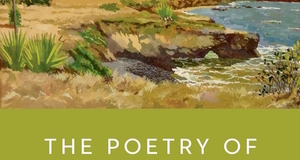Derek Walcott's A Far Cry from Africa
By
2009, Vol. 1 No. 11 | pg. 1/1
KEYWORDS:
Derek Walcott’s “A Far Cry from Africa” expresses how Walcott is torn between “Africa and the English tongue [he] love[s]” (30). Several of Walcott’s poems – “The Schooner Flight” and Omeros – include some elements of French patois and West Indian English. The West Indies had “traded hands fourteen times in…wars between the British and French” (Norton 2770), and Walcott tied each of these languages together to convey to his readers the extremity of his “racially mixed ancestry” (Farrell 2) and the indeterminacy that often follows such a varying ancestry. In “A Far Cry from Africa,” Derek Walcott uses the advantages of hybridity to express unhomliness. Derek Walcott often described himself as a “mongrel”; both grandmothers were African and both grandfathers were European (Norton 2770). He hated the English culture but loved the English language and empathized with the Irish for they were also the victims of colonization. In “A Far Cry from Africa,” Walcott does not express all aspects of British and African culture; instead he focuses only on the brutal history of both. He is “poisoned with the blood of both,” and he is torn between the two horrific options of a bloodied Africa or the attacker that is England (26). In order to effectively colonize another’s land, the colonizer’s culture has to become so widely spread and deeply embedded in the colonized land’s culture so that the indigenous peoples will begin to accept that they are inferior to the colonizers. Mimicry is a term used to explain the natives’ imitating the colonizing country due to their want to be “accepted by the colonizing culture” and their feeling of inferiority and shame for their own culture (Tyson 221). In order to fully dominate a land by supporting their culture as superior, the colonizer must use one of the most powerful conveyances for the dispersion of ideologies: language. When the British colonized the West Indies, they enforced English as the official language, the main means of causing the natives to accept the British culture as their own. However, in “A Far Cry from Africa,” Walcott ironically describes how he rejects the British culture – the colonialist ideology – but accepts the British language as superior. As a colonial subject, Walcott would have been seen by the colonizers as an other, and as half-European, Walcott would have been seen as different from the completely indigenous peoples. While these full-blooded natives would also have learned Standard English along with the French Creole and emulated British culture, their hybridity would not be as extreme as Walcott’s background. As a person of mixed blood and having family members that were European, Derek Walcott would have had a First World upbringing in a Second World country. “A Far Cry from Africa” uses metaphors, such as “colonel of carrion” (5), and ironic statements, such as “corpses are scattered through a paradise” (4), to describe the death and destruction and inhumanity that has occurred in both Africa and Europe. As half-European and half-African, Walcott was privileged to bear both horrible histories. The full-blooded natives’ desire was to look and behave like the colonizers. However, they did not have to bear the burden of being genetically similar to the colonizers, and not only being torn between two cultures but “divided to the vein” (27). Derek Walcott uses his genetic hybridity and cultural hybridity to express the extremity of his unhomliness. Farrell, Joseph. “Walcott’s Omeros: The Classical Epic in a Postmodern World.” South Atlantic Quarterly. 96.2 (1997): 247-274. Academic Search Complete. EBSCO. Georgia State University Lib., Atlanta, GA. 11 Dec 2007 . Norton Anthology of English Literature. 8th ed. New York: Norton, 2006. Tyson, Lois. Critical Theory Today: A User-Friendly Guide. New York: Taylor & Francis Group, 2006. Suggested Reading from Inquiries Journal
Inquiries Journal provides undergraduate and graduate students around the world a platform for the wide dissemination of academic work over a range of core disciplines. Representing the work of students from hundreds of institutions around the globe, Inquiries Journal's large database of academic articles is completely free. Learn more | Blog | Submit Latest in Literature |















